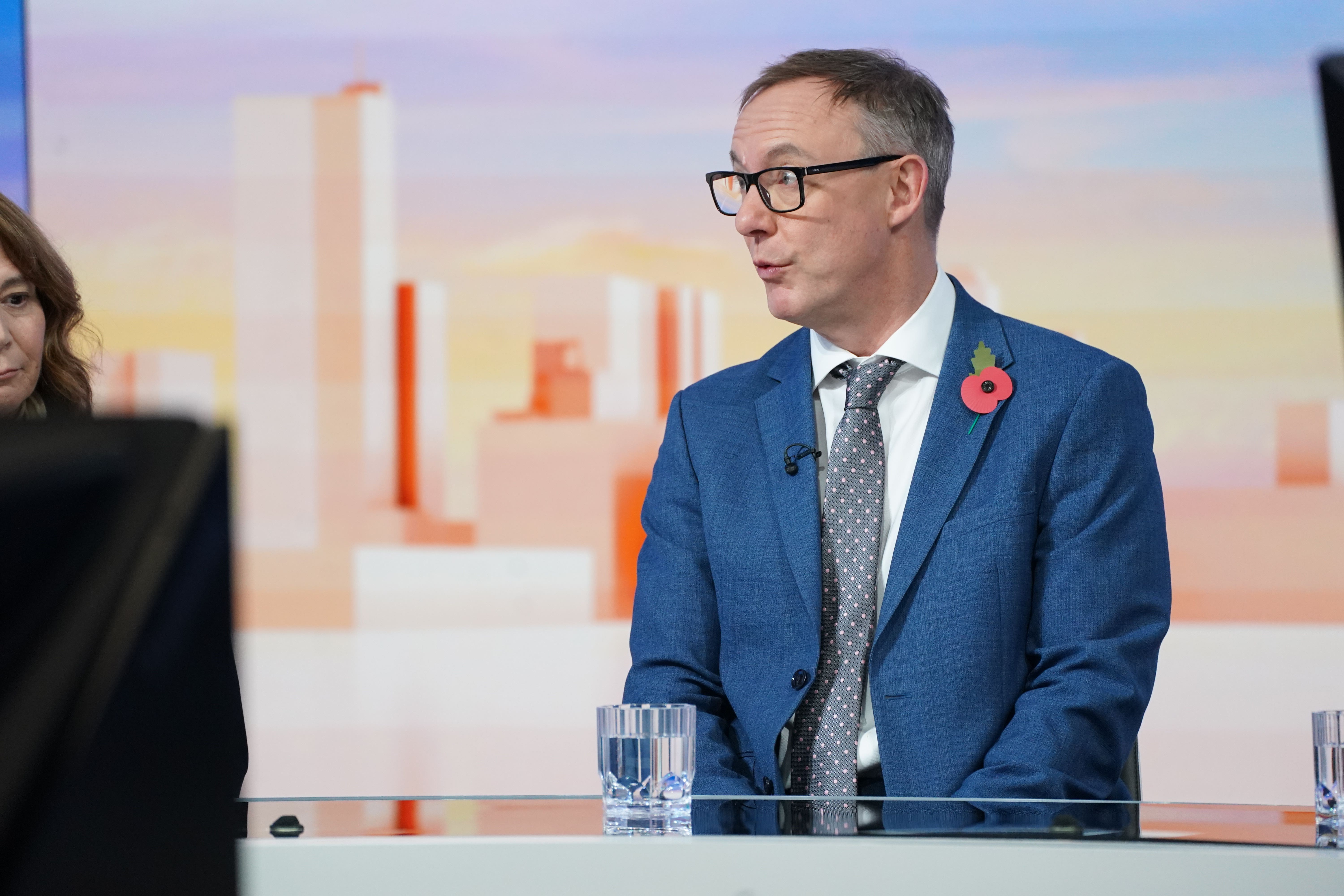What is the IFS and what is its view of the General Election manifestos?
The think tank has held a two-hour briefing on what the parties have put forward.

Your support helps us to tell the story
From reproductive rights to climate change to Big Tech, The Independent is on the ground when the story is developing. Whether it's investigating the financials of Elon Musk's pro-Trump PAC or producing our latest documentary, 'The A Word', which shines a light on the American women fighting for reproductive rights, we know how important it is to parse out the facts from the messaging.
At such a critical moment in US history, we need reporters on the ground. Your donation allows us to keep sending journalists to speak to both sides of the story.
The Independent is trusted by Americans across the entire political spectrum. And unlike many other quality news outlets, we choose not to lock Americans out of our reporting and analysis with paywalls. We believe quality journalism should be available to everyone, paid for by those who can afford it.
Your support makes all the difference.The Institute for Fiscal Studies (IFS) has released its analysis of the political party manifestos as polling day approaches on July 4.
Here is a look at the response to the pledges made by the parties.
– What is the IFS?
The IFS is billed as an independent economics institute which aims to analyse and inform economic and policy decisions with “rigorous analysis”.
Its verdicts on major spending decisions, including those contained in the budget and election manifestos, are often keenly awaited by Westminster watchers.
– What is the institute’s latest intervention during the General Election campaign?
IFS director Paul Johnson led a two-hour briefing in which he and his colleagues provided an in-depth look at the challenges facing the next government and the potential impact of the manifesto pledges made by the parties.
– Is the IFS happy with the information provided by the parties?
No. The institute has said the manifestos of Labour and the Conservatives provide little information about the funding outlook for individual services, which makes it easier for them to stay silent on any cuts to unprotected budgets.
While the IFS acknowledged it did not expect the parties to outline comprehensive spending plans, it added they could have provided more details on their priorities and rough minimums or totals for different areas of spending.
Existing government departmental spending plans run until the end of March 2025, with a new comprehensive spending review expected within months of the election.
Mr Johnson said both parties have maintained a “conspiracy of silence” on their spending plans and people will be voting in a “knowledge vacuum” on July 4.
– Why does this matter?
The IFS says Labour and the Tories have ignored the big challenges facing the next government and it has rubbished their claims of providing “fully costed” manifestos.
It notes that specific policies have been costed by the parties but it is harder to grasp overall spending for each public service and where cuts might fall.
Mr Johnson said there are “huge decisions” expected over the size and shape of the state, adding it is likely to mean “higher taxes or worse public services”.
He added both parties are committed to ensuring that debt is falling in five years, adding it “really constrains” them and neither have “faced up” to the “painful choices” required.
Tax locks – pledges not to increase specific taxes or tax rates – have also been made by both parties, something Mr Johnson labelled a “mistake” as it will “constrain” their options in future.
– What will the parties have to do?
The IFS believes the next government, unless it gets “lucky”, will have to do one of three things: make tax rises beyond their manifesto pledges, implement spending cuts or increase borrowing – and therefore go against their fiscal rules.
Mr Johnson said: “What will they choose? I don’t know, the manifestos do not give us a clue.”
– Were there words of encouragement for the other parties?
Not really. Mr Johnson noted Reform UK and the Green Party have helped to “poison the political debate” by suggesting their “radical reforms can realistically make a positive difference” when their proposals are “wholly unattainable”.
He said: “It makes the other parties look feeble when you say ‘we could do all this stuff’. They can’t.”
– And what was the response from Labour and the Tories?
Prime Minister Rishi Sunak and Labour leader Sir Keir Starmer defended their plans and disagreed with the assessment, arguing they intend to implement changes to boost the economy.
Subscribe to Independent Premium to bookmark this article
Want to bookmark your favourite articles and stories to read or reference later? Start your Independent Premium subscription today.